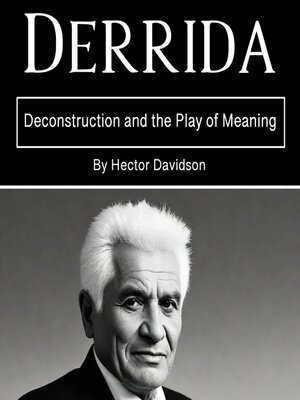
Sign up to save your library
With an OverDrive account, you can save your favorite libraries for at-a-glance information about availability. Find out more about OverDrive accounts.
Find this title in Libby, the library reading app by OverDrive.



Search for a digital library with this title
Title found at these libraries:
| Library Name | Distance |
|---|---|
| Loading... |
Jacques Derrida, one of the most influential philosophers of the 20th century, revolutionized the way we think about language, meaning, and interpretation. His development of the concept of deconstruction has left a profound impact on philosophy, literary theory, and critical thought. To understand Derrida's legacy, it is essential to explore the key elements of his intellectual journey and how his ideas continue to shape contemporary discourse.
Derrida was born in Algeria in 1930, and his philosophical development was deeply influenced by the intellectual currents of post-war Europe, particularly phenomenology, structuralism, and existentialism. His work challenged the assumptions that underpinned much of Western thought, especially the metaphysical foundations of philosophy. One of his central concerns was the question of meaning and how it is constructed. He argued that meaning is never fixed, but instead is constantly shifting and dependent on a network of differences. This idea of différance, a term Derrida coined to describe the interplay of differences in language, became a cornerstone of his philosophy.
At the heart of Derrida's thought is the critique of the Western philosophical tradition, which he believed had centered itself around binary oppositions—such as presence/absence, speech/writing, and mind/body. These oppositions, Derrida argued, are not natural or inherent, but rather are constructed and perpetuated through language. By deconstructing these binaries, Derrida aimed to reveal the hidden power structures and assumptions that shaped our understanding of the world. He proposed that language itself is unstable, always in flux, and that meaning can never be fully contained or reduced to simple terms.







